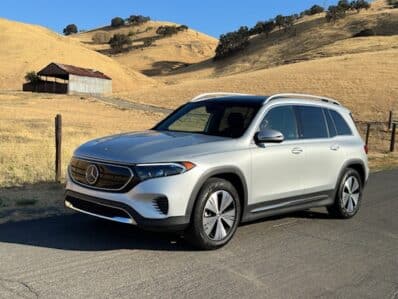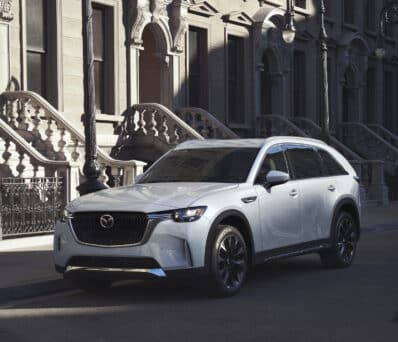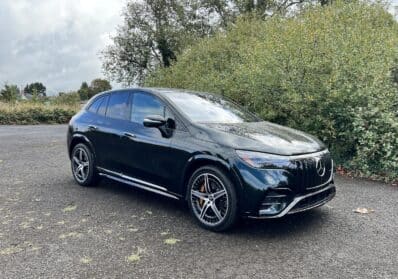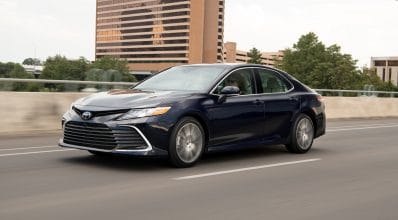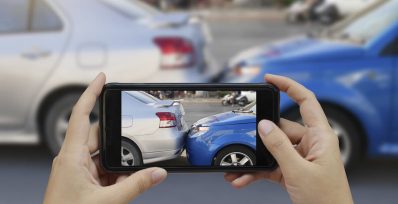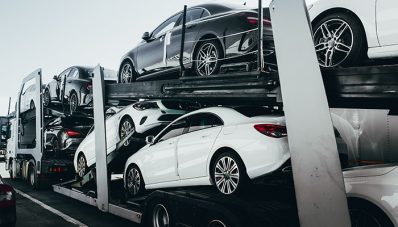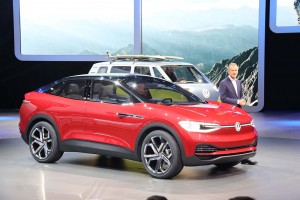
Germany’s Volkswagen AG expects to sell 22 million battery-electric vehicles over the next decade, CEO Herbert Diess said during the company’s annual meeting on Tuesday.
The carmaker has been on an aggressive push into electrification and has outlined projects expected to cost it close to $100 billion by 2025 alone. But, until today, Diess had set a target of selling just 15 million battery-cars. Either figure would mark a massive increase considering VW sold just 50,000 all-electric vehicles last year.

“The supertanker is picking up speed,” Diess said Tuesday in a speech to shareholders gathered in Frankfurt. “We are aligning Volkswagen with e-mobility like no other company in our industry.”
Until a few years ago, Volkswagen was a reluctant participant, at best, in electrification, with a handful of products like the e-Golf, an all-electric version of its popular compact product line. The automaker shifted rapidly in the wake of its admission that it cheated on diesel emissions tests, a scandal that has so far cost it more than $30 billion.

The key to the expanded program is the launch of an all-new sub-brand, Volkswagen I.D., which will focus exclusively on battery-electric vehicles. The first model is set to roll off an assembly line in Zwickau, Germany, later this year. And VW is gearing up a number of other plants to handle electrified products. In January, Diess announced during an appearance in Detroit that the automaker will invest $800 million in its Chattanooga, Tennessee factory to produce two future battery-electric vehicles, or BEVs.
(Click Here to see more about VW’s $800 million EV plant coming to Chattanooga.)
The I.D. brand will cover a broad spectrum, from a planned entry-level offering expected to come in at under $30,000 all the way up to large sedans, SUV and even a new version of its legendary Microbus to be called the I.D. Buzz.
All told, Volkswagen officials announced during a media briefing in Chicago last month that they will produce “50-plus” BEVs by 2025, though that list will include not only VW I.D. models but also all-electric offerings marketed through the rest of the carmaker’s dozen passenger vehicle brands.
(Click Here to check out the VW I.D. Dune Buggy concept.)
That includes not only low-end SEAT and Skoda, but high-line marques such as Porsche and Audi. The sports car brand is set to begin production of its first all-electric model, the Taycan, this year, with an SUV version to follow in 2020. Late last month, Porsche announced plans to add an all-electric version of its Macan crossover, as well.
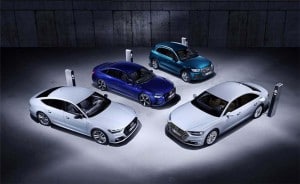
As for Audi, meanwhile, it showed off the Q4 e-tron battery-electric concept at the Geneva Motor Show last week. It is expected to go into production in 2021. Audi will also get into the BEV market this year with the e-tron SUV, and it is developing a sports car version for early in the coming decade. It will be virtually identical to the e-tron GT prototype that was unveiled at the Los Angeles Motor Show last November.
While VW is making its primary push into all-electric models, it will continue to add other forms of electric propulsion to its mix. The Bentley brand, for example, already offers a plug-in hybrid version of its big Bentayga SUV, while Porsche has a PHEV version of its Panamera four-door. Audi last week revealed four plug-in models at the Geneva Motor Show.
(Click Here to check out those new Audi plug-ins.)
The shift to electrification comes as VW downplays its long-running bet on diesel – though Diess has said on several recent occasions that the automaker won’t entirely abandon “oil burners” from its line-up.
Like its competitors, Volkswagen is facing increasingly stringent emissions and fuel economy regulations in key markets, China recently enacted the New Energy Vehicle mandate that is meant to promote zero-emission vehicle sales. Several European countries, such as Norway and France, are considering rules that would effectively ban the sale of vehicles with internal combustion engines.
During the shareholders meeting on Tuesday, VW officials said they plan to reduce by 30% the carbon footprint of a typical vehicle. I.D. models, meanwhile, are expected to become carbon neutral.





